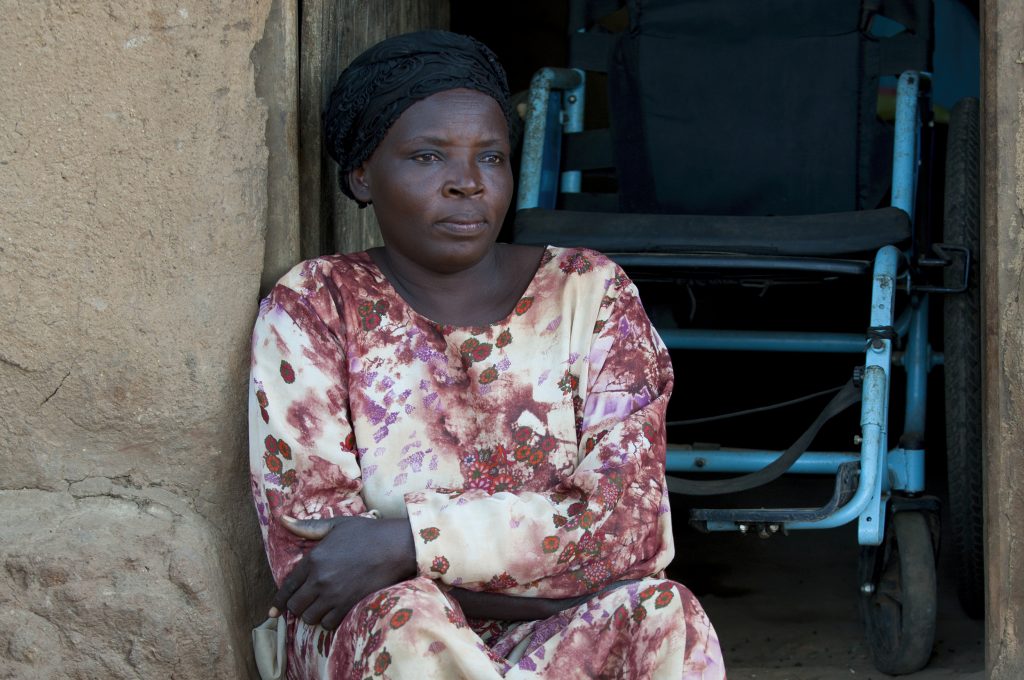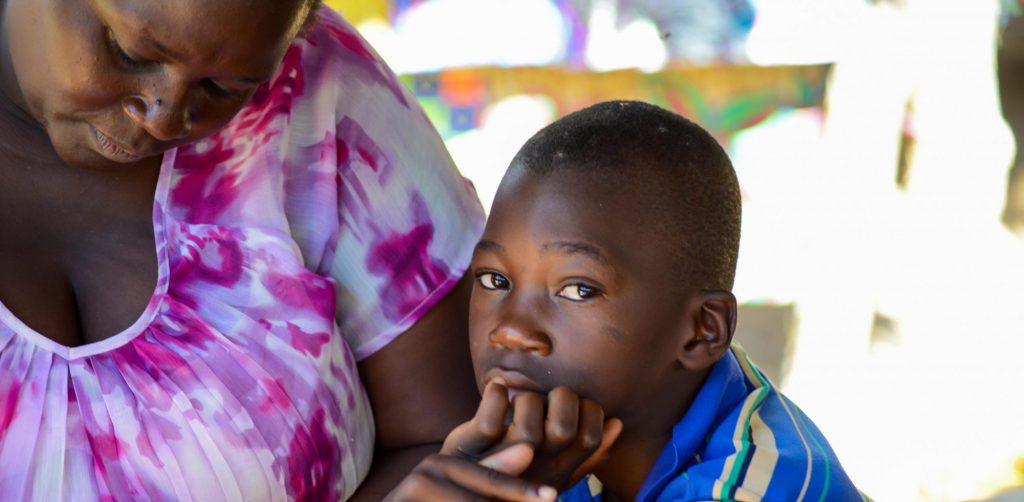Persons with disabilities are among the most affected by disasters, emergencies and conflicts. In partnership with the National Union of Disabled Persons of Uganda (NUDIPU), we work towards strengthening the protection of persons with disabilities in situations of risk and humanitarian emergencies, by advocating for disability inclusive mitigation, preparedness, response, and recovery efforts, as well as by promoting inclusion efforts led by Disabled People’s Organisations (DPOs).
NAD has worked with Disability inclusive Disaster Risk Reduction in Uganda since 2017.
Left out of decision-making processes
The disaster situation in Uganda is becoming more complex due to threats such as climate change, natural hazards, and biohazards. In 2020, Uganda suffered from landslides, floods, drought, a locust invasion, and COVID-19, among others.
According to the World Bank, climate change is expected to increase the risk of various types of natural disasters in the country. It is no longer possible to ignore disasters in Uganda as they negatively impact all spheres of life and sectors of the economy.
Persons with disabilities forced to flee their homes due to natural disasters or conflicts are disproportionately affected and often left out of humanitarian responses. Children and persons with disabilities are at a higher risk of violence, exploitation and abuse, and shelters, camps, classrooms, and food distribution systems are often not universally designed.
The Uganda Government committed to Disaster Risk Reduction by ratifying the Sendai Framework for Disaster Risk Reduction (2015-2030) and to disability inclusion by ratifying the UN Convention on the rights of Persons with Disabilities (CRPD). It additionally developed a policy on Disaster Risk Reduction in 2010. However, like many other policies on Disaster Risk Reduction, there are gaps in inclusion of persons with disabilities and their organisations.

Promoting a disability-inclusive humanitarian response
The Disability inclusive Disaster Risk Reduction (DiDRR) programme is about building the capacity of persons with disabilities and their organisations so that they can effectively promote and advocate for disability inclusive humanitarian responses, towards both governmental and non-governmental actors.
Persons with disabilities are experts on their own life situations and should be involved in the decision-making processes affecting them in situations of risk in order to create safe and inclusive solutions.
The programme promotes disability-inclusive humanitarian efforts by providing systematic capacity development of DPOs at central, district and community level, and facilitating partnerships between DPOs, government and non-governmental actors.
Empowered DPOs provide technical support and training of local government, UN and civil society, as well as conduct systematic review, monitoring and analysis of the state of disability inclusion in local efforts.
Main achievements in Uganda
Some of the main achievements of our DiDRR work and partnerships are:
- Partnership between NUDIPU and the UN World Food Program. NUDIPU has worked closely with the World Food Program, which sponsored 34 disability inclusion trainings for their staff, implementing partners and the Food and Cash Management Committees in all refugee settlements. Overall the trainings reached 1077 participants.
- Representation on different DRR forums. The programme has influenced 14 DRR forums to include representatives from the disability community. These comprise: The National Platform for Disaster Risk Management hosted by Office of the Prime Minister, the National CSO Humanitarian Platform hosted by the National NGO Forum, the Inter-Agency working Group in Bidi Bidi Refugee Settlement, and the Kasese District NGO Network (KADINNET), among others. In all, persons with disabilities are represented by 65 representatives in the forums.
- NUDIPU has participated in the reviewing of the National Climate Change Bill 2020 to ensure that disability issues are considered. NUDIPU is also participating in the formulation of the Bill on Disaster Risk Reduction 2020, and in the review of the Regulatory Impact Assessment of this Bill.
- As a result of the empowerment of DPOs, 9 DPOs are engaged in DRR and humanitarian response activities at national and district level, and 3 District Unions of persons with disabilities are engaged in DRR at district and community level.
COVID-19:
- The programme mobilised DPOs under the leadership of NUDIPU and developed an issue paper on disability and COVID-19 used to guide the Government on issues of concern.
- The programme united 11 DPOs to influence the Government to appoint Hon. Safia Juuko Nalule as a representative of persons with disabilities on the National Task Force for COVID-19. Nalule is a woman with physical disability, a former member of Parliament, and the new Chairperson of the Equal Opportunities Commission for Uganda.
- NUDIPU’s DiDRR core group responded to the immediate needs of their members through food distribution to the most vulnerable during COVID-19 lockdown.

